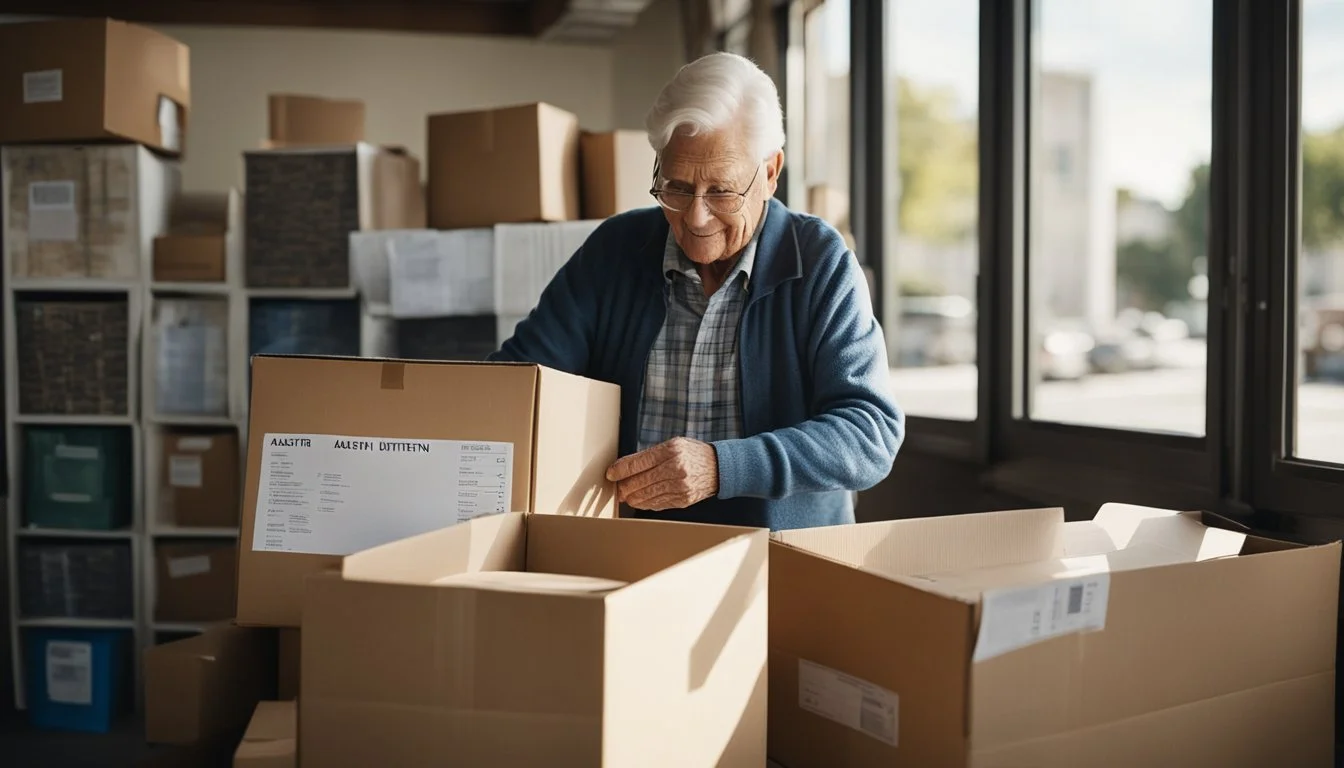Tips for Moving to Austin as a Senior Citizen
Essential Advice for a Smooth Transition
Relocating to Austin as a senior citizen can be an exciting adventure, filled with numerous opportunities for a vibrant lifestyle. Known for its quality of living, entertainment options, and diverse culture, Austin has become a popular destination for retirees. With a mix of outdoor activities such as boating, golfing, and hiking, there are plenty of ways to stay active and engaged.
A crucial factor to ensure a smooth transition is to start planning well in advance. Moving can be physically and emotionally demanding, so it’s advisable to recruit professional movers or enlist the help of capable family members. Begin packing early, taking it one step at a time to avoid feeling overwhelmed.
Additionally, take advantage of Austin’s Aging Services Hub, which provides connections to healthcare, home repairs, transportation, and various senior living activities. These resources can significantly ease the settling-in process and help maintain a comfortable and enjoyable lifestyle in your new home.
Understanding Austin's Appeal
Austin, a city known for its vibrant cultural scene, pleasant outdoor activities, senior-friendly community, and manageable living costs, offers a compelling option for senior citizens considering relocation.
Cultural Richness and Entertainment
Austin stands out for its diverse cultural offerings and entertainment options. Known as the "Live Music Capital of the World," it hosts various music festivals, including the renowned Austin City Limits. Music, theater, and art scenes thrive here, providing seniors with numerous ways to stay engaged and entertained.
Prominent venues like the Paramount Theatre and the Blanton Museum of Art exemplify the city's rich artistic tapestry. Friendly locals and a variety of restaurants, cafes, and museums ensure that there's always something new to explore.
Outdoor Lifestyle and Recreation
The city's mild climate and scenic landscape make it ideal for outdoor enthusiasts. Parks like Zilker Metropolitan Park and the Lady Bird Lake Hike-and-Bike Trail offer abundant recreational activities ranging from hiking and biking to kayaking.
Locally, areas such as Barton Springs Pool and the Greenbelt provide beautiful spots for relaxation and physical activity. These recreational opportunities allow seniors to enjoy an active lifestyle while appreciating natural beauty.
Senior-Friendly Community and Healthcare
Austin boasts a well-supported senior community with excellent healthcare options. Resources such as the Aging Services Hub provide support for healthcare, home repairs, and transportation. Notable medical centers like St. David's HealthCare and Seton Medical Center offer high-quality care, ensuring that health needs are met effectively.
The city's comprehensive plan reflects a commitment to senior citizens, with initiatives aimed at creating an age-friendly environment. This makes it easier for seniors to integrate into the community and access essential services.
Economic Factors and Living Costs
Austin's cost of living, while rising, remains relatively manageable compared to other major cities. Housing costs can vary widely, but there are affordable options in various neighborhoods. Property taxes and utilities are important considerations but are generally balanced by the city's amenities and services.
The local economy is robust with a mix of technology, education, and government sectors driving employment. Seniors can benefit from public transportation options that help reduce travel costs, and local markets offer fresh produce at reasonable prices, contributing to a balanced and affordable lifestyle.
Planning Your Move
Efficient planning can significantly ease the process of relocating to Austin, especially for senior citizens.
Budgeting for Your Move
Creating a moving budget is crucial. List all potential expenses, including hiring professional movers, packing supplies, travel costs, and temporary housing.
To begin, research various moving companies. Compare prices and services to ensure you get the best value. Check for any additional fees, like extra charges for heavyweight items or long carrying distances.
Next, consider downsizing. Selling or donating unneeded items can reduce moving costs. It’s also a good time to declutter and simplify your move.
Include a buffer in your budget for unexpected costs. Emergency expenses can arise, and having a financial cushion can prevent stress. Plan for travel expenses, especially if moving from a distant location.
By outlining these costs and preparing accordingly, seniors can streamline their move to Austin and avoid financial surprises.
Making The Transition
Moving to Austin as a senior can present unique challenges and opportunities. It's crucial to focus on organizing the move, maintaining emotional and physical health, and establishing a new daily routine to ensure a smooth transition.
Packing Strategies
Seniors should start the packing process early to reduce stress. Prioritize items with sentimental value and essential belongings. Downsizing is often necessary when moving from a larger home to a senior living community.
Make a list of what to keep, donate, or discard. Utilize color-coded labels to categorize items for ease of unpacking. Family members can assist by helping with heavy lifting and providing moral support. Packing over several days rather than in one go can help manage energy levels and reduce anxiety.
Addressing Emotional and Physical Health
Moving can be emotionally taxing for seniors. Feelings of guilt, fear, sadness, and anxiety are common. It's helpful to acknowledge these emotions and seek support from friends, family, or professional counselors.
Regular check-ins with healthcare providers ensure physical health is not neglected. Maintaining a balanced diet and staying hydrated during the move can also support well-being. Engaging in light physical activities, such as walking, can alleviate stress.
Establishing a New Routine
Creating a new daily routine helps seniors acclimate to their new environment. Schedule regular activities, such as joining social clubs or attending community events, to foster social connections.
Organize a comfortable living space that suits their daily needs. This may include setting up a reading nook or a place to engage in hobbies. Learning the layout of the new home and the surrounding neighborhood can enhance a sense of independence and security.
Settling Into Austin
Austin offers an appealing mix of community resources, vibrant social interactions, and reliable transportation options. Seniors relocating here will find a host of amenities and leisure opportunities designed to cater to their needs and interests.
Engaging in Social and Recreational Activities
Austin Senior Activities: The city provides numerous activities for seniors, such as the programs at the city's Aging Services Hub. This resource connects older adults to health care, home repairs, food services, and senior living activities.
Parks and Recreational Centers: Seniors can enjoy the scenic beauty of Austin through its many parks and hiking trails. Communities like Bouldin Creek offer pleasant green spaces where one can partake in leisurely strolls or more active outdoor pursuits.
Cultural Events and Entertainment: For those seeking cultural engagement, Austin's thriving music scene and frequent public events downtown provide ample entertainment. Whether attending concerts or local festivals, there are plenty of opportunities to stay socially active.
Transportation is also senior-friendly, with public transit options making it easier to access these activities without relying exclusively on a car.
Living Your Best Senior Life in Austin
Austin offers an ideal environment for senior citizens with its robust healthcare options, educational opportunities, and vibrant local culture.
Healthcare and Wellness
Healthcare services in Austin are comprehensive and senior-friendly, with top hospitals and clinics like St. David's Medical Center. The city's emphasis on wellness is evident through numerous fitness centers and wellness programs.
Senior-specific services, such as SilverSneakers fitness classes and specialized wellness programs, are widely available. Additionally, Austin provides numerous parks and trails for outdoor exercise and relaxation.
Opportunities for Learning and Volunteering
Seniors in Austin have access to various educational institutions, including courses and programs at the University of Texas at Austin. These opportunities help keep minds active and engaged.
Volunteering options are plentiful, with organizations like Meals on Wheels Central Texas and various community centers. Seniors can give back to the community while staying socially connected.
Enjoying the Local Scene: Music and Dining
Austin's renowned music scene features live performances that seniors can enjoy at places like the Moody Theater.
Dining options are extensive, ranging from local food trucks to upscale restaurants, ensuring there's something for every palate. Many establishments offer discounts or special menus catered to senior tastes and dietary needs. The vibrant culture ensures seniors never run out of enjoyable activities.




